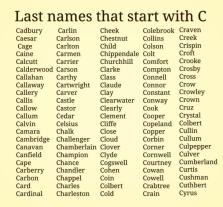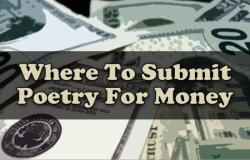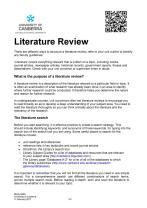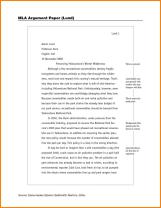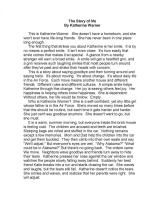What are the best creative writing schools?
Determining the "best" creative writing schools can be subjective, as it depends on individual preferences, goals, and needs. However, several institutions are widely recognized for their strong creative writing programs, faculty, and resources. Here are some leading institutions known for their excellence in creative writing:
University of Iowa (Iowa Writers' Workshop):
- The University of Iowa's Writers' Workshop is one of the oldest and most prestigious creative writing programs in the world. It has produced numerous Pulitzer Prize-winning authors and is renowned for its intensive workshops and distinguished faculty.
University of Michigan (Helen Zell Writers' Program):
- The Helen Zell Writers' Program at the University of Michigan offers a highly regarded MFA (Master of Fine Arts) program in creative writing. It provides students with the opportunity to work with accomplished faculty and engage in various genres.
New York University (NYU):
- NYU's Creative Writing Program is known for its diverse and distinguished faculty, including award-winning writers. The program offers workshops, readings, and opportunities to connect with the vibrant literary community in New York City.
University of Virginia (MFA Program in Creative Writing):
- The University of Virginia's MFA Program in Creative Writing is consistently ranked among the top programs in the country. It emphasizes small workshops and a strong sense of community among its students.
Columbia University (School of the Arts):
- Columbia University's School of the Arts offers an MFA program in Creative Writing with a focus on fiction, poetry, and nonfiction. The program features renowned faculty members and a close-knit writing community.
University of California, Irvine (MFA Programs in Writing):
- UC Irvine's MFA Programs in Writing include concentrations in fiction, poetry, and nonfiction. The programs emphasize mentorship, workshops, and opportunities for interdisciplinary exploration.
Boston University (MFA in Creative Writing):
- Boston University's MFA in Creative Writing program offers workshops, seminars, and opportunities for hands-on experience in the literary field. It is known for its commitment to fostering a diverse and inclusive writing community.
University of Texas at Austin (Michener Center for Writers):
- The Michener Center for Writers at the University of Texas at Austin offers an MFA program with a focus on fiction, poetry, playwriting, and screenwriting. The center provides generous fellowships to admitted students.
Johns Hopkins University (Writing Seminars):
- Johns Hopkins University's Writing Seminars offer graduate programs in fiction and poetry. The programs emphasize close mentorship, workshops, and the exploration of different literary traditions.
Emerson College (MFA in Creative Writing):
- Emerson College's MFA in Creative Writing program provides students with opportunities to engage with Boston's literary community. The program offers a range of workshops and emphasizes a multidisciplinary approach to writing.
It's important to note that the best creative writing program for an individual depends on their specific goals, interests, and preferences. When considering creative writing schools, factors such as faculty, program structure, available resources, and location should be taken into account. Additionally, the quality of undergraduate creative writing programs may vary, so prospective students should thoroughly research each institution and program before making a decision.
What factors distinguish the best creative writing schools?
Several factors distinguish the best creative writing schools from the rest. Here are some key considerations:
Faculty:
- Reputation and experience: Look for a faculty comprised of renowned authors, established writers, and experienced writing instructors who can provide expert guidance and mentorship.
- Variety and diversity: A diverse faculty offering a range of expertise in different genres, styles, and writing approaches can enrich the learning experience.
- Accessibility and interaction: Consider the accessibility of faculty for individual consultations, workshops, and feedback sessions.
Curriculum and Program Structure:
- Depth and focus: Does the program offer a comprehensive curriculum that covers various writing fundamentals, genre-specific techniques, and opportunities for advanced study?
- Balance between theory and practice: Does the program provide a good balance between theoretical knowledge gained through literature analysis and practical writing exercises and workshops?
- Flexibility and customization: Does the program offer flexibility in course selection and allow for tailoring the program to your individual interests and goals?
Student Support and Resources:
- Small class sizes: Smaller class sizes encourage individual attention, personalized feedback, and a more collaborative learning environment.
- Writing centers and workshops: Does the school offer dedicated writing centers and workshops that provide additional support, guidance, and opportunities for peer feedback?
- Guest speakers and events: Does the school regularly host guest lectures, workshops, and readings by established writers to inspire and engage students?
Industry Connections and Career Support:
- Alumni network and career services: Does the school have a strong alumni network and provide career guidance and support to help graduates connect with publishing opportunities and writing jobs?
- Internship and mentorship programs: Does the school offer internship opportunities or mentorship programs with established writers and professionals to gain real-world experience?
- Literary magazine and publishing opportunities: Does the school have a student-run literary magazine or offer publishing opportunities for students to showcase their work?
Other Factors:
- Location and facilities: Consider the location of the school and access to libraries, writing centers, and other resources.
- Cost and financial aid: Compare the tuition fees of different programs and research financial aid options available.
- Community and culture: Look for a school with a vibrant writing community, a supportive and encouraging atmosphere, and opportunities for peer interaction and networking.
Ultimately, the best creative writing school for you will depend on your individual needs, goals, and priorities. Carefully consider these factors and research different programs to find the one that best aligns with your aspirations and provides the ideal environment to nurture your writing talent.




